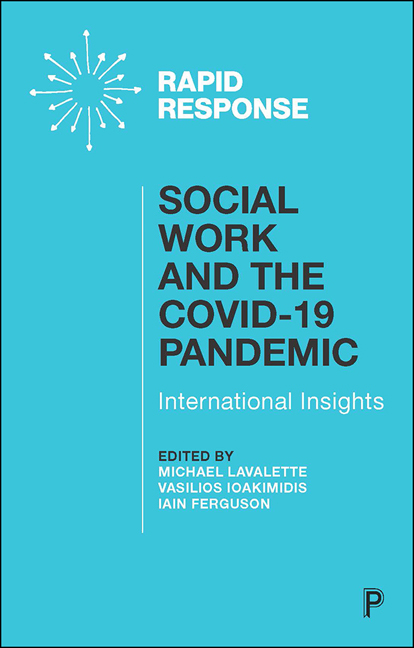18 - Roma Communities’ Experiences of Racism During The COVID-19 Pandemic
Published online by Cambridge University Press: 23 March 2021
Summary
During the COVID-19 outbreak Roma communities faced specific additional risks and vulnerabilities which needed to be addressed, in order to prevent the spread of the virus and also to prevent the exacerbation of existing inequalities. Roma communities already faced a level of social exclusion and destitution and there was a real danger that the outcomes of COVID-19, and the resultant climate of uncertainty and fear, would further marginalise these communities. The response to COVID-19, and the related issues highlighted here, needed to be both swift and holistic, or the implications for Roma communities would be severe.
Housing
Govanhill is home to the largest Roma communities in the UK. The housing conditions many Roma people in live in across Scotland are unacceptable, with many facing problems of overcrowding, exploitative landlords, high rents and poor housing conditions. Many live in large extended family groups in, one-or two-bedroom tenement homes with limited garden access which made social distancing more difficult and stressful for both parents and children.
Overcrowding meant self-isolation could not be possible for anyone presenting symptoms of the virus. Similarly, overcrowding meant that the Scottish Government advice for those in the ‘shielding’ category to ‘avoid all non-essential contact with other people in your household’ would be extremely difficult, if not impossible, to follow. This meant that the virus threatened Roma communities disproportionately, and the greater Govanhill area, quicker. Govanhill is the most densely populated area of Scotland, and research has shown cramped living conditions accelerated the spread of the virus.
Roma and community groups argued and campaigned that Roma and other communities living in overcrowded situations should, as a priority, receive targeted testing, and alternative accommodation, as well as empty hotel rooms, be made available.
In addition, the ‘benefits’ of government initiatives, such as mortgage holidays, were not passed onto Roma people, who are disproportionately represented within the private rental market, often renting from exploitative landlords, without written or legal leases. Many Roma people were not aware of their rights in relation to these new housing initiatives. Other than Roma charities, housing rights activists and the individuals within the local housing association, nothing was being done to communicate these initiatives to the Roma community, and importantly, nothing was being done locally to force the adherence by local landlords to the Scottish Government's housing eviction moratorium.
- Type
- Chapter
- Information
- Social Work and the COVID-19 PandemicInternational Insights, pp. 131 - 136Publisher: Bristol University PressPrint publication year: 2020

